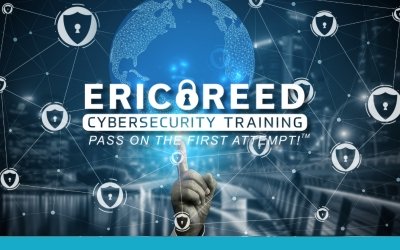What Topics Should a Cybersecurity Training Program Cover?
In the fast-paced and ever-evolving field of cybersecurity, staying ahead of threats requires not just vigilance but comprehensive knowledge. A well-rounded cybersecurity training program is crucial for developing the skills and understanding needed to protect digital assets effectively. But what topics should such a program cover to ensure it’s equipping participants with the necessary expertise? Let’s delve into the essential areas that form the backbone of effective cybersecurity training, with insights into how programs like Eric Reed’s Cybersecurity Training ensure comprehensive coverage.
1. Cybersecurity Fundamentals
Understanding the basics is crucial. This includes the principles of information security, the CIA triad (Confidentiality, Integrity, Availability), and an overview of the cybersecurity landscape. A program should lay a solid foundation, much like Eric Reed’s training, which starts with these essentials to build a strong base for more advanced topics.
2. Threat Landscape and Risk Management
An effective program dives into the various types of cyber threats, such as malware, phishing, and ransomware, and teaches how to assess and manage risks. Recognizing the importance of this, Eric Reed’s training includes real-world examples and case studies, helping participants understand how to identify and mitigate risks.
3. Network Security
With networks being a prime target for attackers, understanding network security is paramount. This includes topics like firewalls, intrusion detection systems (IDS), and network protocols. Programs like Eric Reed’s ensure participants get hands-on experience with tools and techniques to secure networks.
4. Cryptography
A strong grasp of cryptography is essential for protecting data. Training should cover encryption algorithms, digital signatures, and public key infrastructure (PKI). Eric Reed’s Cybersecurity Training emphasizes the practical application of cryptography, ensuring participants can implement secure communication channels.
5. Identity and Access Management (IAM)
Controlling who has access to what is a cornerstone of cybersecurity. Training programs must cover IAM principles, including authentication, authorization, and access control models. By incorporating this into the curriculum, Eric Reed’s program ensures learners can design and implement robust access control systems.
6. Incident Response and Recovery
Knowing how to respond to and recover from security incidents is critical. A comprehensive program will cover incident response planning, forensic analysis, and disaster recovery strategies. Eric Reed’s training prepares participants to handle incidents effectively, minimizing impact and restoring operations swiftly.
7. Secure Coding Practices
For those involved in software development, understanding how to code securely is crucial. This includes topics like input validation, error handling, and secure storage practices. Eric Reed’s training addresses these areas, ensuring developers can write code that’s as secure as it is functional.
8. Regulatory and Compliance Standards
Familiarity with legal and regulatory requirements is necessary for many cybersecurity roles. This includes standards like GDPR, HIPAA, and PCI-DSS. Eric Reed’s program covers these important topics, ensuring participants understand their importance and how to ensure compliance.
9. Emerging Technologies and Future Trends
Lastly, a forward-looking program will touch on emerging technologies like cloud security, IoT security, and artificial intelligence in cybersecurity. Staying ahead of the curve, Eric Reed’s training incorporates these future trends, preparing participants for the next wave of cybersecurity challenges.
Conclusion
A robust cybersecurity training program should cover a broad spectrum of topics, from foundational principles to advanced techniques and emerging trends. Eric Reed’s Cybersecurity Training exemplifies such a program, offering comprehensive coverage, practical experience, and expert guidance. Whether you’re starting your cybersecurity journey or looking to advance your skills, understanding these key topics is essential for protecting digital assets in an increasingly complex cyber landscape. For more information on how you can embark on this comprehensive learning journey, visit ericreedlive.com or reach out directly at eric@ericreedlive.com.


